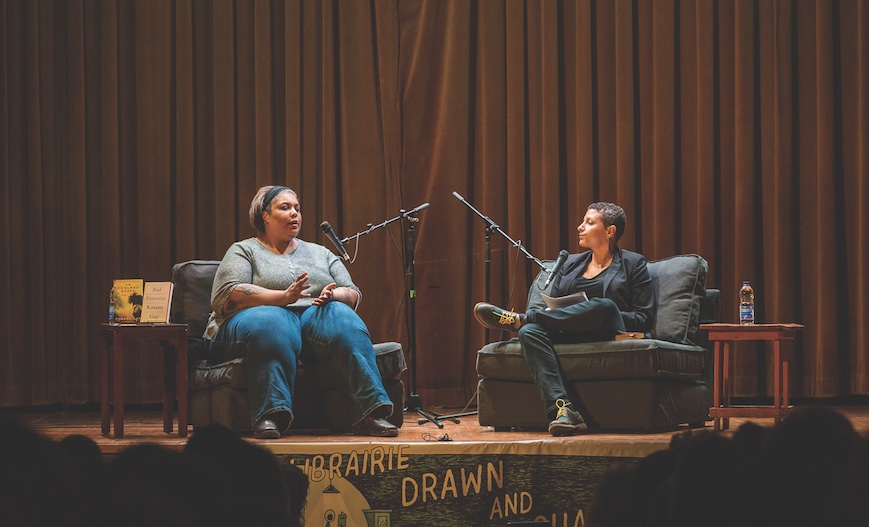Roxane Gay, professor, editor, and author of Bad Feminist, spoke this Thursday in a public conversation with McGill PhD candidate Rachel Zellars. The two engaged in dialogue on subjects such as Gay’s Haitian-American identity, her responses to criticism, and how they have impacted her experience and viewpoints as a feminist writer.
Zellars began by referencing a recent op-ed piece that Gay had written for the New York Times. The piece was a response to the death of Samuel Dubose, an unarmed African-American man shot dead by police this past summer, and Gay shared her thought process for the article.
“I feel these compulsions when these horrific crimes happen, and before I know it, I’m at my computer,” Gay said. “At the same time that Samuel Dubose was murdered, especially in the United States, everyone was talking about Cecil the Lion—who was murdered in Zimbabwe I believe—and he was killed by a dentist. And everyone was mourning the lion, and saying ‘oh, what a tragedy,’ […] and that’s true […] but we had more cultural empathy for a lion than we did for a man.”
Gay continued to discuss the importance of nuance in many of the issues she writes about in her essays, and how she believes her multi-ethnic identity allows her to better understand these grey areas.
“I think that one of the biggest challenges that we face in contemporary discourse is that no one’s interested in nuance,” Gay said. “I really do believe in looking at both sides of an issue, and trying to understand both sides […] and we don’t do that enough. We don’t acknowledge that people who disagree with us might, once in awhile, have merits to their arguments. I’m a Haitian-American, black woman who grew up in Nebraska. My whole life is a grey area […] I have this string of all these identities at once, and so that allowed me to see multiple sides of an issue.”
Citing Bad Feminist, Zellars asked Gay how women can nurture critical ,but not cruel relationships with other women. Gay explained the importance of taking criticism, and spoke to her own experience learning to do so as a female writer.
“I wouldn’t even limit it to women,” Gay said. “I think human beings have a really difficult time being critical without being cruel. We have to overcome this lesser part of our nature in order to really be able to give criticism, and more importantly to be able to receive it [….] I’m getting better at it, but I think it’s hard, because when you’re a woman who dares to write and publish opinions, you get told that you’re trash all day long. I have to counteract that nonsense with an overinflated sense of self, just to balance [that out….] So I’m working on learning to be wrong sometimes.”
Gay concluded by stressing the importance of media literacy, another subject she claimed is not properly addressed in modern society. For Gay, enjoying problematic media is fine when readers remain critical and informed about its implications, but she believes the effect of its uninformed consumption is detrimental.
“That’s why I think we need to teach media literacy,” Gay said. “We don’t talk about that enough [….] I think we need to start teaching media literacy as early as kindergarten […] I don’t think they need to know the lyrics to ‘Salt Shaker’ at five years old, but I do think one of the keys right now, one of the stop-gap measures, is media literacy.”
The James McGill Chair in Culture and Technology, Dr. Jonathan Sterne, presented Thursday’s event, in junction with Concordia Writer’s Read, and the Montreal-based bookstore and publishing company, Drawn & Quarterly.
“I agreed to co-sponsor [the event] because Gay is an important and inspiring black feminist voice,” Sterne said. “And Bad Feminist is a great book.”
Zoe Koch, an artist living in Montreal, praised the event.
“[Gay] has complicated viewpoints, which I really respect and admire, and I really wanted to hear what she had to say,” Koch said. “I loved it. She […] really bridged that gap between what is really deep and dark and scary for us all to talk and think about [… with] what is funny and light.”








